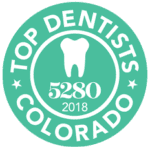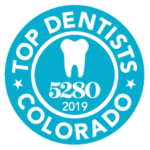 A headache is just a headache, you can take a few over the counter painkillers and it will go away on its own, no big deal! Right? Wrong! You may be experiencing unnecessary headaches with a preventable solution. When most people think of headaches, they blame lack of sleep, stressors, too much caffeine, or even having to look at a computer for hours on end. All of these are common causes of headaches. However, an underlying dental issue may also be the reason you are suffering from headaches more frequently. Let’s take a look at common dental problems that can lead to headaches and how you can resolve these dental issues and alleviate headaches.
A headache is just a headache, you can take a few over the counter painkillers and it will go away on its own, no big deal! Right? Wrong! You may be experiencing unnecessary headaches with a preventable solution. When most people think of headaches, they blame lack of sleep, stressors, too much caffeine, or even having to look at a computer for hours on end. All of these are common causes of headaches. However, an underlying dental issue may also be the reason you are suffering from headaches more frequently. Let’s take a look at common dental problems that can lead to headaches and how you can resolve these dental issues and alleviate headaches.
What Kind of Headache is Most Commonly Caused by Dental Issues?
Underlying dental issues lead to a type of headache known as a tension headache. It is one of the most common types of headaches that people suffer from. Tension headaches are characterized by muscle tightness around the head and neck regions of the body. Symptoms include:
- Aching pain in your head
- Tenderness in your head, neck, and shoulders
- Pressure on your forehead, sides of your head, or even the back of your head
Tension headaches are in response to the tightening of muscles. Your muscles tighten when you sustain an injury, even from a dental issue. When you experience a dental problem, the muscles in your jaw and face involuntarily contract and tighten for long periods of time which leads to a tension headache as a result.
Headaches are more than just a nuisance, they can interfere with your everyday life. They can decrease your ability to focus, be productive at work, attentive when driving, and make you feel withdrawn from the activities around you. If your headaches are caused by a dental issue, they will not go away until the underlying issue is solved, no matter how long you take over the counter painkillers. There are several dental issues which cause tension headaches.
Common Dental Problems that Cause Headaches
Poor Bite
When you have either an underbite or an overbite it causes the muscles in your jaw to have to work harder and compensate in order to chew your food up correctly when you eat. Your muscles become strained, which causes them to tighten and contract and leads to tension headaches. Most people suffer from one or the other in varying degrees of severity. For some, an incorrect bite is so slight that it is barely noticed and does not cause any problems. However, for others, their incorrect bite is so severe that it actually causes headaches because your jaws are having to overcompensate for the misalignment.
What Can You Do?
Your dentist can offer bite correction solutions to fit your needs. These can include braces, expanders, veneers, bonding, implants, and possibly reconstruction. The method that is right for you will depend on your unique situation and personal preference.
Grinding Your Teeth at Night
For many people, just the thought of teeth grinding is like nails on a chalkboard. However, it can be more than annoying, grinding your teeth can cause you to experience a tension headache. The reason is that when you grind your teeth you are clenching your jaw shut, which is, in turn, straining the muscles, leading to a headache. Try clenching your jaw shut as tight as you can. Within a few seconds, you can feel the discomfort and possibly pain throughout your jaw. Now, imagine clenching your jaws for an entire night. It’s understandable how you can wake up with a headache the next day.
What Can You Do?
In most cases, your dentist will have a custom mouth guard made to wear at night. Mouth guards help to reduce the tension when you clench your jaw as well as protect your teeth from chipping or breaking during the middle of the night.
Toothaches
Tooth pain in itself can be extremely painful and even accompanied by infection. Toothaches refer to a wide range of dental issues including cavities, chipped teeth, and even exposed roots. Any type of tooth pain causes the muscles to contract which can lead to a tension headache.
What Can You Do?
If you are experiencing a toothache, it is important to see your dentist. Your dentist will be able to find the root of the problem, clear up any infection that has set in and remove or repair the damaged tooth.
TMJ Disorder
A TMJ disorder is pain in the jaw area that originates from either genetics, a jaw injury, or even arthritis. This pain may also be the culprit of your tension headaches as well. The cause of TMJ can be difficult to determine and while for some it goes away on its own, for many it does not and requires medical intervention.
What Can You Do?
Consult with your dentist. Through X-rays, CT scan, and/or MRIs your dentist will be able to thoroughly diagnose the severity of your TMJ. Recommendations can include anything from medications and therapies to possibly surgery.
What Can You Do to Resolve Headaches Caused by Dental Issues?
Just as you maintain a relationship with your primary doctor, it is important to do the same with your dentist. Your dental health affects so much more than just your mouth, teeth, and gums. Poor oral health can actually affect your overall health and lead to poor self-esteem. Serious medical conditions include:
- Heart Disease
- Cancer
- Diabetes
- Pneumonia
- pregnancy and birth complications
It is important to take care of your oral health to prevent very serious health complications down the road and to enjoy a higher quality of life.
The Leading Family Dental Practice in Thornton, Colorado
There’s no need to suffer from unnecessary tension headaches due to an underlying dental problem. If you suspect one of the issues discussed above may be the cause of your headaches, contact Barron Family Dental today to schedule a consultation.



